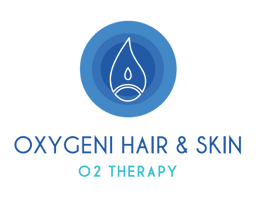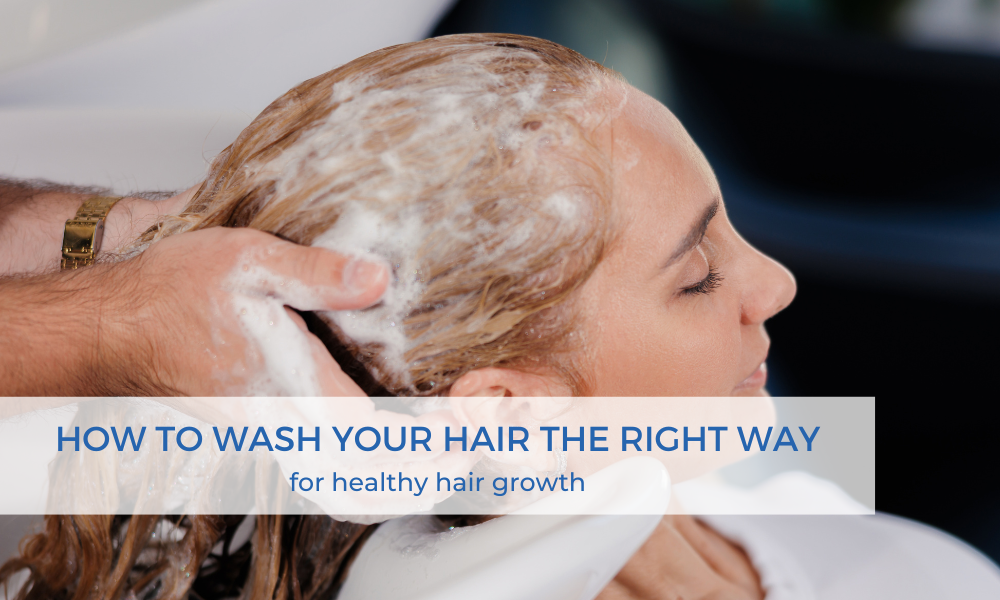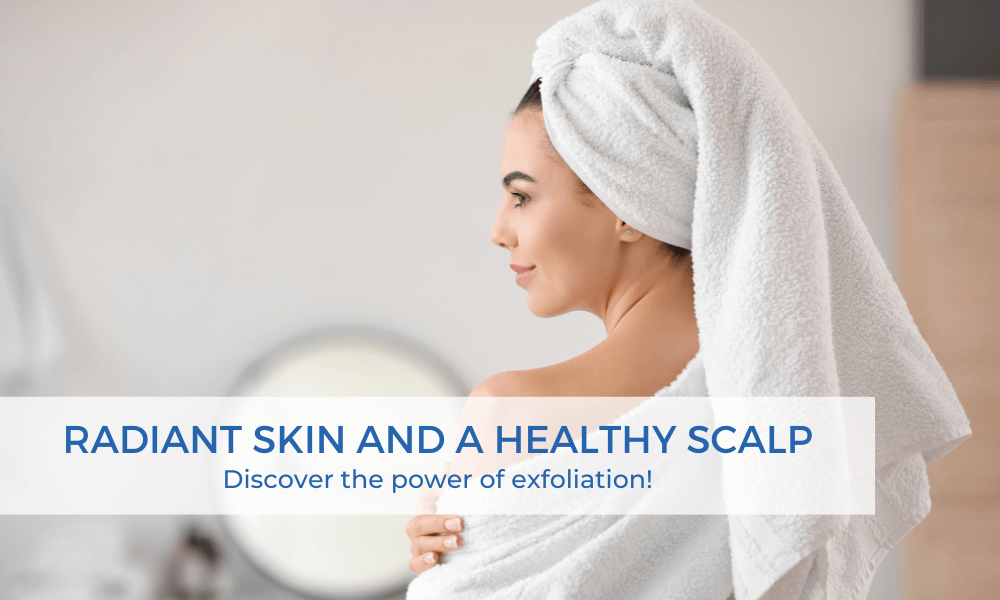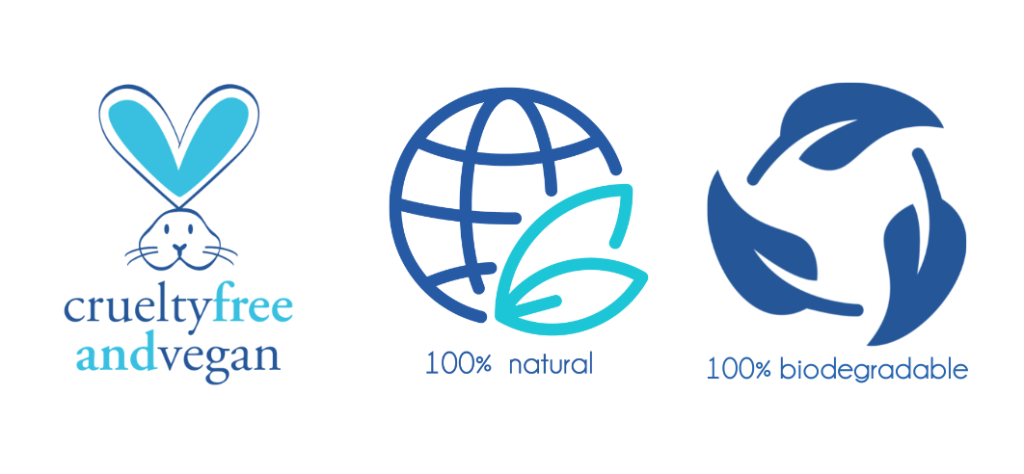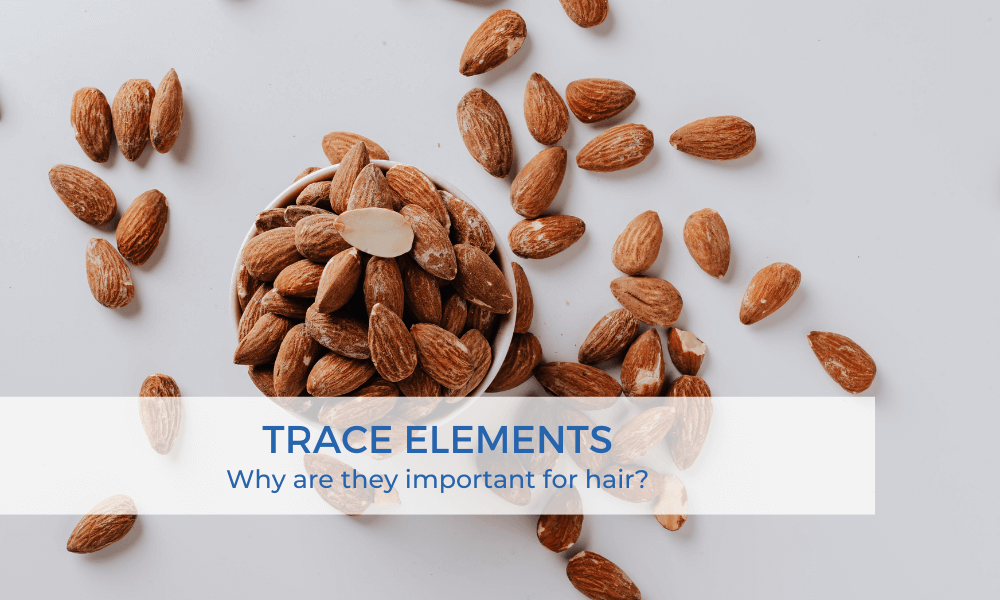
TRACE ELEMENTS
Trace elements, as their name suggests, are micro- and macroelements found in only small amounts in our bodies. They are essential for maintaining our health, and their deficiency can lead to conditions such as eczema or hair loss. In this article, we will introduce the most important trace elements and explain why they are crucial for our hair and overall health.
Most of our body is composed of four main elements (nitrogen, hydrogen, carbon, and oxygen), while trace elements make up only 4% of our body. Their primary function is to ensure the proper functioning of metabolism and the normal course of biochemical reactions and processes. Since our bodies cannot produce these elements, it is important to replenish them through a proper diet and dietary supplements.
ZINC
Zinc is primarily found in the eyes, skin, and hair, making it a crucial microelement for our hair. Zinc helps prevent inflammation and promotes wound healing. Additionally, it enhances the resilience of the skin, nails, and hair and soothes the scalp. Zinc also acts as a coenzyme, as it activates numerous enzymes. Since our bodies cannot store zinc, it is important to supplement it. Primary sources include beef, pork, poultry, eggs, and dairy products. The recommended daily intake is 4-7 mg for women and 5-9 mg for men.

SELENIUM
Selenium is most detectable in the liver, tooth enamel, and nails and is a highly important antioxidant. This microtrace element participates in processes that combat aging and atherosclerosis and is crucial for our immune system. Its deficiency can lead to frequent infections and issues like hair loss and slow hair growth. Additionally, it can reduce inflammation caused by UV radiation. The recommended intake is minimal, as consuming more than 0.2 mg daily can be toxic. Main sources include nuts, seafood, and grains.
Our Oxygeni Hair Strengthening and Hair Growth products help your hair grow faster and ensure your scalp and hair strands become healthier.
COPPER
Another important microelement is copper, an enzyme component crucial for metabolic processes. In adults, copper is mostly found in the eyes, liver, heart, and muscles. It plays a significant role in incorporating iron into hemoglobin, so its deficiency can lead to iron deficiency. Additionally, insufficient copper can result in brittle and thin hair. The recommended daily intake for adults is 1-2 mg. Copper can be replenished by consuming whole grains, dried fruits, and legumes.
MAGNESIUM
Magnesium is a macroelement primarily found in the bones and cells of the human body. It is essential for the functioning of the cardiovascular system and normalizes circulation, thus reducing the risk of heart attacks. Magnesium alleviates stress, which is a primary cause of hair loss. It is advisable to take magnesium along with calcium since, without magnesium, calcium cannot be properly incorporated into the body. The recommended daily intake varies for men and women and depends on health status, but on average, an adult needs 375 mg of magnesium daily. Magnesium-rich foods include leafy greens, nuts, and legumes.

IRON
Iron plays a crucial role in oxygen transport in the blood, as well as in carbon dioxide and electron transport. The absorption and function of this microelement depend on the body’s vitamin C levels, so it is advisable to consume foods rich in vitamin C. Iron deficiency can lead to fatigue, irritability, loss of appetite, and hair loss. Inadequate iron levels can also affect brain function, leading to inattentiveness and lack of motivation. Additionally, iron deficiency can cause dry, fragile skin and brittle nails. The recommended daily intake for an average adult man is 8 mg, while women require a much higher intake of 18 mg per day. Primary sources of iron include liver, lentils, peas, peanuts, amaranth, and raisins.
Restore the health of your hair with natural products!
Oxygeni Hair products can also be helpful. Dilute Hydrate Wash with Med Oil and Aloe Vera Gel in the appropriate amounts. After the second wash, apply Sensitive Mask, which contains iron trace elements, by mixing it with Aloe Vera Gel, H2O Thermal, and Med Oil. Use the applicator to apply the mixture to your hair, and apply Pure Mask to the hair ends. For best results, cover your hair with a shower cap.
CALCIUM
Calcium is the most abundant macro trace element in the body. Nearly 99% of calcium is found in the teeth and bones, primarily responsible for their formation and maintenance. Calcium deficiency can result in white spots and cracks in the nails. Inadequate calcium levels can also cause scalp dandruff. An adult’s daily calcium requirement is 1000 mg. Primary sources include dairy products, as well as nuts.
Our Oxygeni Hair products for oily scalp and hair loss has a detoxifying effect on the scalp. These products help the scalp achieve proper sebum production and enrich the hair with vitamins. The Oxygeni Hair Sensitive Wash is particularly notable as it contains valuable ingredients such as copper, zinc, magnesium, calcium, potassium, and iron.
POTASSIUM
About 98% of potassium is found within our cells, with only a small amount circulating freely in the blood. This macroelement ensures the proper functioning of cells, allowing them to perform their duties. Potassium also plays a vital role in the body’s fluid balance, which is essential for healthy hair. Potassium deficiency can result in dry skin, weakness, and acne. The daily potassium requirement for an adult is 2000-3000 mg. Primary sources include bananas, potatoes, prunes, oranges, and tomatoes.
EXERCISE AND HEALTHY EATING
Trace elements are essential for the health of our body and hair, but they are not sufficient on their own to achieve significant effects. Regular exercise is important, as it not only helps reduce stress but also increases oxygen supply to the scalp during physical activity. This promotes cell regeneration and hair growth.

Additionally, it is advisable to follow a diet rich in vitamins, minerals, and trace elements. While dietary supplements can often be beneficial, it is important to research how much to take and which supplements are the most important. If you are interested in what to consider when choosing dietary supplements, read our related blog post!
As mentioned above regarding individual trace elements, we distinguish between microelements and macroelements. The difference is simply that certain elements are found in greater or lesser quantities in our bodies. Since our bodies cannot produce trace elements, they must be replenished through dietary intake. The required amount in milligrams often depends on gender, age, and certain lifestyle differences. Consult our hair specialists, who can provide personalized hair care and hair treatment advice, as well as offer lifestyle support!
OXYGEN THERAPY AND OXYGENI HAIR PRODUCT REVIEWS





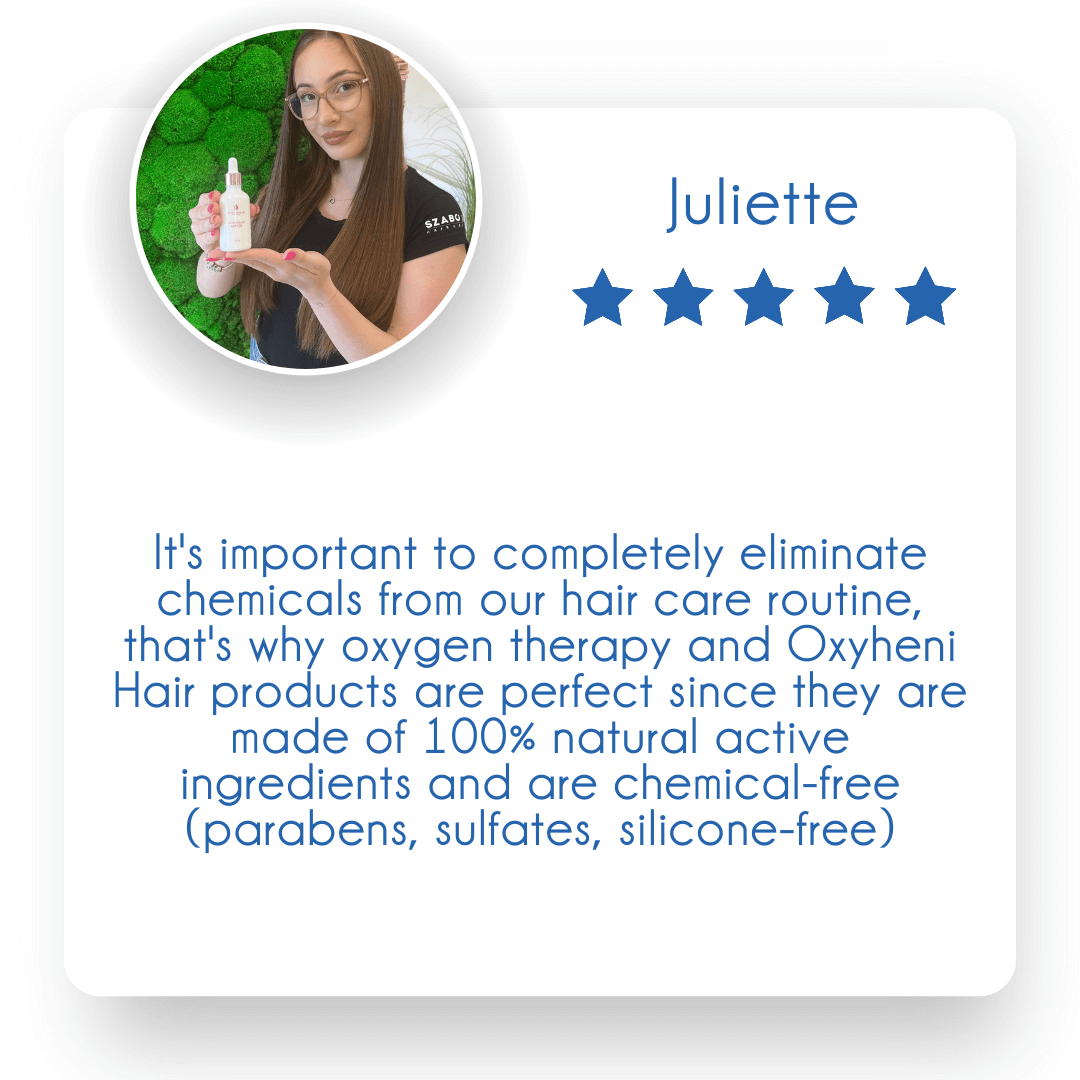

Follow us on our social media platforms!
